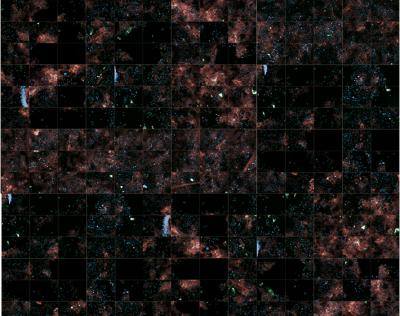The grant from the Cancer Prevention and Research Institute of Texas will support Dr. Tanmay Lele’s research on cancer and how it progresses

Credit: Texas A&M University College of Engineering
On May 20, Dr. Tanmay Lele, professor in the Department of Biomedical Engineering at Texas A&M University, received a $5 million Recruitment of Established Investigators grant from the Cancer Prevention and Research Institute of Texas (CPRIT) to further knowledge about cancer and how it progresses.
Lele’s research focuses on mechanobiology — the mechanical aspects of biology — where he works to understand how cells sense external mechanical forces as well as how they generate mechanical forces, and how these mechanical forces impact cell function.
In cancer, both cellular mechanical forces and the mechanical properties of resisting cellular structures go awry. These errors cause abnormalities in cell structure. A particularly striking feature of cancer cells is the highly irregular and/or distended shape of the nucleus.
“The nuclei in normal tissue have smooth surfaces, but over time the surfaces of cancer nuclei become irregular in shape,” Lele said. “Now, why? Nobody really knows. We’re still at the tip of the iceberg at trying to figure this problem out. But nuclear abnormalities are ubiquitous and occur in all kinds of cancers — breast, prostate and lung cancers.”
Pathologists study biopsies and note abnormalities in the shape of the cell and its nucleus to grade the severity of cancer. Lele and his team are computerizing the analysis of nuclear shapes to research the cause of abnormal cancer structures.
Using photos of nuclei and cells in human tissue taken by a pathologist, Lele’s team has developed a computational algorithm to measure the degree of irregularity in the nucleus. With the algorithm, the team can run statistical analyses of the abnormalities and search for correlations between the extent of the irregularity, changes to genetic or molecular signatures in tumors and, ultimately, patient outcomes.
Lele’s research aims to help the medical community develop new knowledge of human cancers and how they progress, to better diagnose and manage cancers. Understanding the mechanisms behind the abnormalities can help develop therapies to better treat cancers by targeting the nucleus.
“Like any other basic field, we are trying to make discoveries with the hope that they will have long-term impacts on human health,” Lele said.
The cancer grant from CPRIT is a collaborative effort with Dr. Michael Mancini and Dr. Fabio Stossi from the Baylor College of Medicine.
###
Media Contact
Amy Halbert
[email protected]
Original Source
https:/




